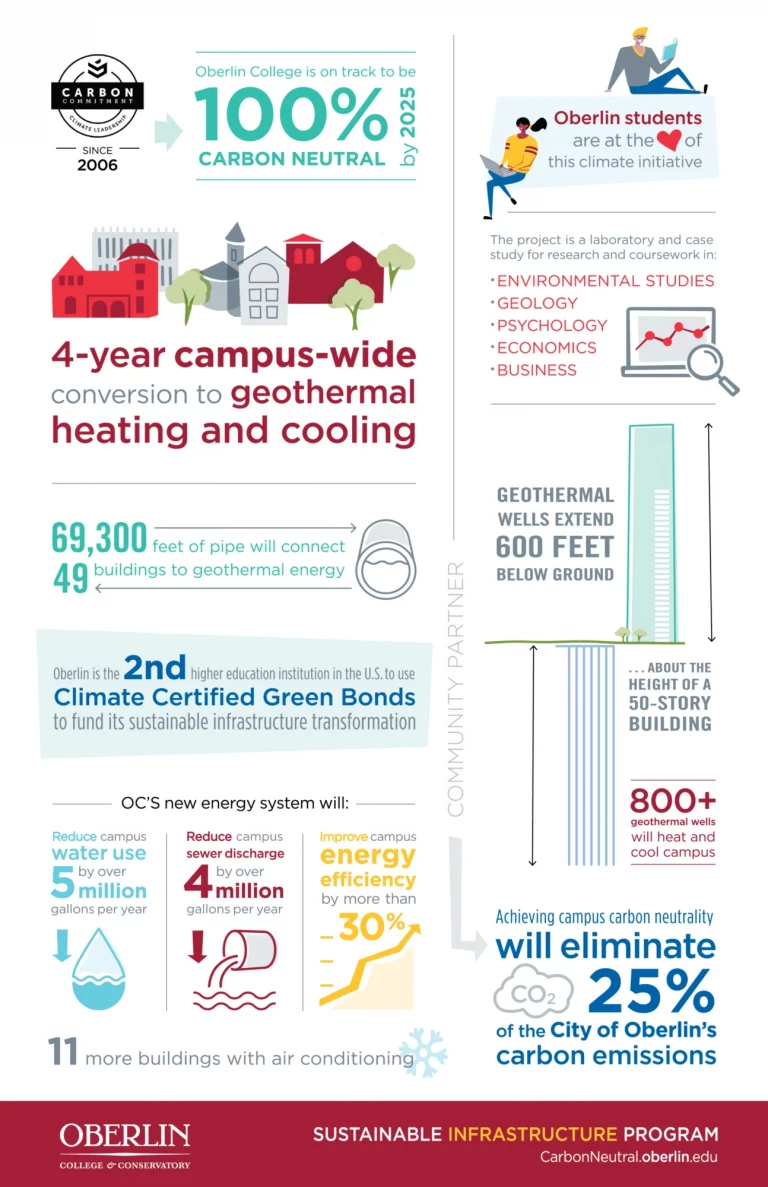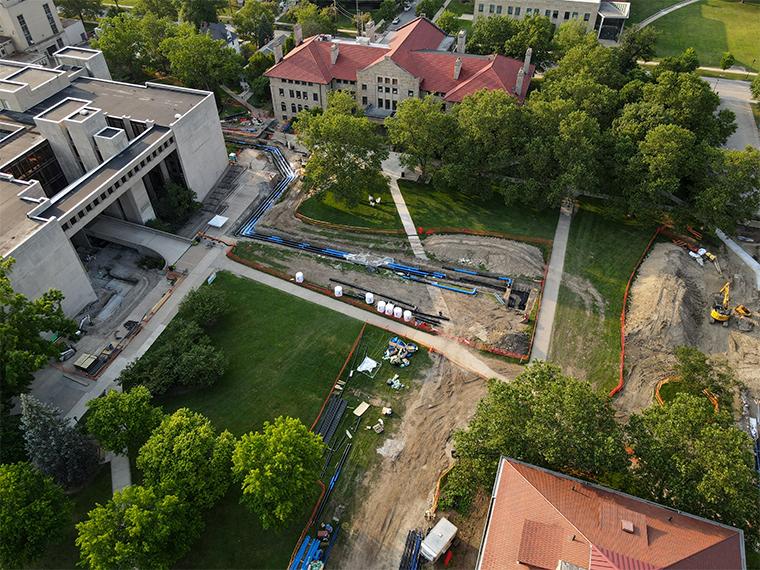Oberlin College’s Sustainable Infrastructure Program
Hear from Oberlin College and Conservatory leaders on the four-year program to convert the campus to geothermal heating and cooling to achieve carbon neutrality by 2025, Oberlin College’s Sustainable Infrastructure Program from Oberlin College and Conservatory on Vimeo.
Oberlin’s Sustainable Infrastructure Program focused on upgrading the century-old heating infrastructure serving campus to a hot water system. This work enabled a large-scale geothermal system, added cooling to buildings, and implemented other building improvements that increase student and faculty comfort year-round. These improvements are the tangible outcomes of Oberlin’s earlier commitments to the American College and University Presidents’ Carbon Commitment and the 2025 carbon goal.

The project has helped Oberlin College reach its ambitious goal to become carbon neutral using efficiencies, clean energy sources, and offsets to bring the institution’s net release of carbon dioxide to zero in 2025.
The transition reduces Oberlin’s water use by more than five million gallons per year, reduces sewer discharge by more than four million gallons per year, and improves campus energy efficiency by more than 30 percent.
“We’re also establishing a system that can be further developed in the future. It will be flexible enough to be able to implement new technologies as they become available in say 20, 40, 60 years from now. It’s a good opportunity for us to put our sustainability goals on display.”
— Rebecca Vazquez-Skillings, Vice President for Finance and Administration at Oberlin College
Advancing this district energy system creates future opportunities for Oberlin businesses, nonprofits, schools, and other partners to connect to reliable, cost effective, and low carbon energy.

.
